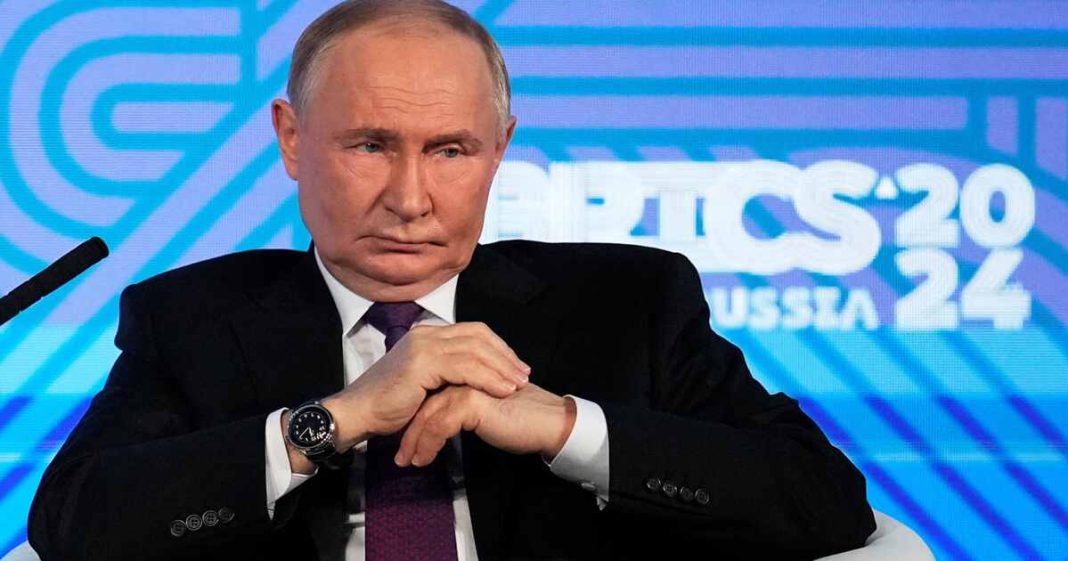As Russia faces unprecedented isolation due to its war in Ukraine and the subsequent sanctions from the West, President Vladimir Putin is seeking new avenues to counterbalance the economic pressure on his country. The annual BRICS summit, currently being held in the Russian city of Kazan, offers a unique opportunity for Putin to challenge the West’s dominance, particularly in the financial sphere. But is this gathering of emerging economies a serious threat to the Western-led financial system, or just a geopolitical show of defiance?
BRICS as an Anti-Western Alliance
BRICS, an acronym for Brazil, Russia, India, China, and South Africa, has evolved from its origins as a loose association of emerging economies into a political and economic bloc. BRICS countries represent roughly 45% of the global population and account for around 25% of the world’s GDP, positioning themselves as a counterweight to Western influence. The group’s central aim is to challenge the economic and political monopoly of Western institutions like the International Monetary Fund (IMF) and the World Bank.
Read More: Putin hosts BRICS summit in Russia under shadow of Ukraine war
For Putin, the significance of BRICS goes beyond economic cooperation. It represents a platform for forging alliances with countries that share Russia’s grievances against the Western world order. The inclusion of new members like Iran, Egypt, Ethiopia, and the UAE in 2023 signals a growing appetite for expanding the group’s influence, further amplifying its challenge to Western hegemony.
Circumventing Western Sanctions
The war in Ukraine has left Russia in a precarious financial position, with the country facing sweeping sanctions from the United States, the European Union, and their allies. Key Russian banks have been removed from the SWIFT financial messaging system, making it difficult for Moscow to engage in international transactions. This has made it imperative for Russia to find alternatives that can bypass Western control over global financial systems.
One of the key goals for Putin at the BRICS summit is to push for the development of a multicurrency payment system that would allow member states to conduct cross-border transactions in their national currencies, rather than relying on the U.S. dollar or euro. This would not only help Russia but also appeal to other BRICS nations that are wary of the West’s ability to weaponize the global financial system.
Russia has already proposed creating a system that uses distributed ledger technology (DLT) or tokens for international settlements, which could protect participants from the risk of extraterritorial sanctions. Moscow envisions a financial network shielded from U.S. interference, one that would offer the BRICS bloc greater autonomy in trade and finance.
Challenges to a Unified BRICS Currency
While the idea of a BRICS currency has been floated, there are significant hurdles to its implementation. Brazil’s President Luiz Inácio Lula da Silva proposed a common trading currency for the bloc earlier in 2023, but other members remain cautious. India’s Foreign Minister S. Jaishankar has expressed skepticism about the feasibility of such a project, citing the complexity of aligning diverse economic policies.
The reality is that BRICS countries are not monolithic. There are deep political and economic differences between key members, such as China and India, which have a long-standing rivalry, as well as tensions between new members like Egypt and Ethiopia. These geopolitical fault lines make it difficult for BRICS to fully align on economic issues, especially one as complex as creating a shared currency.
Despite these challenges, individual BRICS members are increasingly opting for bilateral trade in national currencies, and Russia is eager to accelerate this trend. By promoting currency swaps and reducing dependency on the dollar, Russia hopes to establish a framework where Western sanctions have minimal impact.
A Global Shift, or Mere Posturing?
For Putin, the BRICS summit is as much about optics as it is about substantive policy changes. Hosting over 20 world leaders in Kazan, including Indian Prime Minister Narendra Modi and Chinese President Xi Jinping, sends a clear message to the West: Russia is not isolated. The attendance of prominent figures like Turkey’s President Recep Tayyip Erdogan and UAE’s Mohamed bin Zayed Al Nahyan bolsters Putin’s argument that the international community is not uniformly aligned with the Western position on Russia’s actions in Ukraine.
However, it remains to be seen whether BRICS can provide the systemic changes Putin desires. Critics point out that the bloc is far from unified, and while individual members might benefit from financial alternatives to the dollar, a fully developed BRICS-centric financial system is a long way off. Moreover, many BRICS countries, including India, continue to maintain strong economic ties with the West, making it difficult to fully commit to any anti-dollar movement.
Read More: BRICS to make ‘important decisions’ in Kazan – Putin
The BRICS summit in Kazan offers Putin a stage to demonstrate that Russia is far from isolated, even amid Western sanctions. By advocating for an alternative financial system that reduces reliance on the dollar, Putin aims to build a coalition that shares his disillusionment with the Western-led financial order. Yet, internal divisions within BRICS and the complexities of global trade mean that the path to financial independence from the West is not straightforward.














